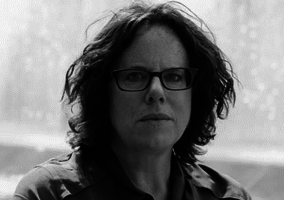The Better Way principles demand radical change. They speak of compassion and kindness but – or perhaps sadly because of that – they absolutely do not speak of the status quo.
Informed by those principles, we now have a strategy at Shelter that requires us to change the country. And we are embarking on a development programme to ensure our culture – the way we do what we do – will help us to do that and nothing less. It might be risky to write a blog about it at this point! But I think the questions we face as a result are vital for the future of the Better Way network – and for anyone focusing an organisation on a challenging and radical set of strategic ambitions.
Having said our culture shift is radical though, what our strategy (which you can read on our website) really means is doing everywhere what we do at our best. There’s not much in there that someone in Shelter hasn’t already thought of or even done. That’s the prize of a strategy process that engaged the whole organisation in setting its purpose and key strategic outcomes.
But it’s still radical to be a big organisation which always nurtures and empowers smaller charities and groups locally, giving our spaces and even our resources to build capacity in local communities. It’s radical to build a movement for change that doesn’t have to be owned or branded by us as long as it aims at our strategic outcomes. It’s radical to commit wholeheartedly and unreservedly to co-production; to disrupt power structures including our own; to commit to a cultural and political change way beyond our current influence, because that’s what’s needed to get 3.1 million social homes built over 20 years, ending the national emergency that our housing crisis has become. Because it is in fact the only way to end it.
Thinking and acting in new ways
To achieve all this, we need to acknowledge that our purpose will be delivered by our frontline services and campaign teams, and that the rest of us exist to support them. We need more decisions to be taken locally, as close as possible to where they impact our beneficiaries. In fact, we need a porous boundary around our local teams, where people with lived experience who seek our help are valued colleagues, because they help us as much as we help them.
And our response to this considerable challenge must not be simply to define our values in a leadership huddle, describe a set of behaviours that will supposedly mean we “live the values”, and then measure them at annual appraisals. Like everyone, we’ve tried that before. Some of our frontline staff will need to think and act in new ways, that’s for sure, but not as much as our leaders will. And that includes me, our leadership team, our trustees.
As well as taking full ownership of our problems as leaders – and therefore accepting that if things are not OK we are accountable – we need to recognise that everything we do affects it already, so we need to get our act together and keep it together, no matter what. This is great in some ways, because Shelter is already changing and it’s lovely to see. It means we are succeeding in modelling the culture we seek, at least to some extent. The hardest thing is, striving for a culture where leadership is devolved and shared, while also requiring leaders to visibly and decisively lead the change that will get us there.
Two types of leadership
It feels like two types of leadership. We’re telling people to pre-approve, delegate, empower; that senior staff only exist to support the delivery of our purpose, that they need to practise humility, that the traditional “heroic leadership” style is consigned to the unfashionable bit of history. But we’re also telling them that their every move matters because as leaders they can’t help creating culture as they go, that’s how influential they are. It can sound confusing: you’re less important than you might like to think but more important than you sometimes like to tell yourself.
Our people want the organisation’s leadership to be accountable and, until it feels real to them that they won’t be blamed if our new less risk-averse way of doing things goes horribly wrong, many people will understandably be reluctant to make decisions that previously would have been made further up the hierarchy.
I have returned time and again to the Better Way principles. Our change at Shelter has been fundamentally influenced by them. Yet I am still struggling to articulate how to lead the change to a Better Way.
If anyone reading this blog has the answer (and I’m comfortable with the idea that there may be something obvious I’ve missed!), or part of the answer, I very much hope to start a discussion. Our Better Way Principles are about our impact in the world. But they require a particular kind of leadership inside our organisations too. So here, as briefly as I can manage, are my reflections so far.
Prevention is better than cure
We need to practise pre-approval – agreeing a framework with our people and then committing that what they come up with will happen. We need to give support if needed in framing the problem, trusting our people to solve it. We need to open up genuine no-consequences channels of conversation so that our people will tell us what’s wrong as soon as possible. We need to learn from that truth of policy and service delivery that you don’t prevent anything by blaming people. When our organisations fail, other than on the rarest of occasions, it’s because leaders within the system did not establish the conditions for success.
Building on strengths is better than focusing on weaknesses
When we recognise organisations need to change, we mustn’t devalue what has gone before. The world moves on, change is inevitable, and it’s the strengths our people and teams already have that will get us through.
Relationships are better than transactions
Trust is going to be at the heart of our change at Shelter. We are an organisation of passionate people who have come to work for a better world, whether with individuals, in communities or across society. It’s vital each one of us takes on trust that every colleague, no matter whether we agree with their actions, is motivated by the same fundamental desire to do good. All our people need to believe that of our leaders, and our leaders must believe that of all our people. That means we must be worthy of trust, and as leaders that trustworthiness cannot be faked. It must be evident in all we do.
Collaboration is better than competition
We will never stand by and watch a colleague fail. This starts at the top, within and between board and leadership team. No amount of restructuring will make collaboration happen. In organisational silos the muscles of collaboration are slack and they, not the skeleton, are the problem. The only answer is regular exercise.
Mass participation is better than centralised power
Here’s a challenge! This belief is central to Shelter’s new relationship with the outside world, and must be authentic internally as well. We can’t involve everyone in Shelter in every decision. But we ensured that every employee had the opportunity to be part of a face to face meeting to help determine our organisational purpose and the ambitions that now define our strategy. People don’t expect to be asked about everything, but we need to listen honestly to where our people feel disempowered and do something about it. Delegating responsibility without power is a trap we could all too easily fall into if we simply tell our leaders to let go of decisions and they do it half-heartedly.
Local is better than national
Again this is explicit in our strategy. We are investing in activism and giving our people – in the words of Better Way – “the power to shape the places they live and work in”. I have to accept that our hub manager in Bristol knows what’s needed in Bristol far better than me, or anyone on our senior leadership team. We owe her systems and processes that don’t get in her way, and leaders who take the decisions only we can take, and do it quickly.
Principles are better than targets
Better but not instead of! We have to be clear what success looks like. And by principles let’s not mean one-word organisational values that could belong anywhere. But a clear and shared purpose is critical. And paraphrasing the Better Way explanation of this principle has been really useful for my thinking in the internal context: “Quality is a continual process, emerging from principles of human dignity, best reinforced by engagement, challenge and accountability.”
Changing ourselves is better than demanding change from others
This might be the first rule of leadership in my book. And the self-knowledge it requires the most important quality.
As the Better Way network develops, with a clear call to action and hopefully a higher profile, we might be scrutinised against its principles, both from outside and – crucially – from within our organisations. That means it’s time for a conversation about what Better Way leadership looks like. These thoughts are intended as no more than a start.
Polly Neate is the chief executive of Shelter
|
Related articles










